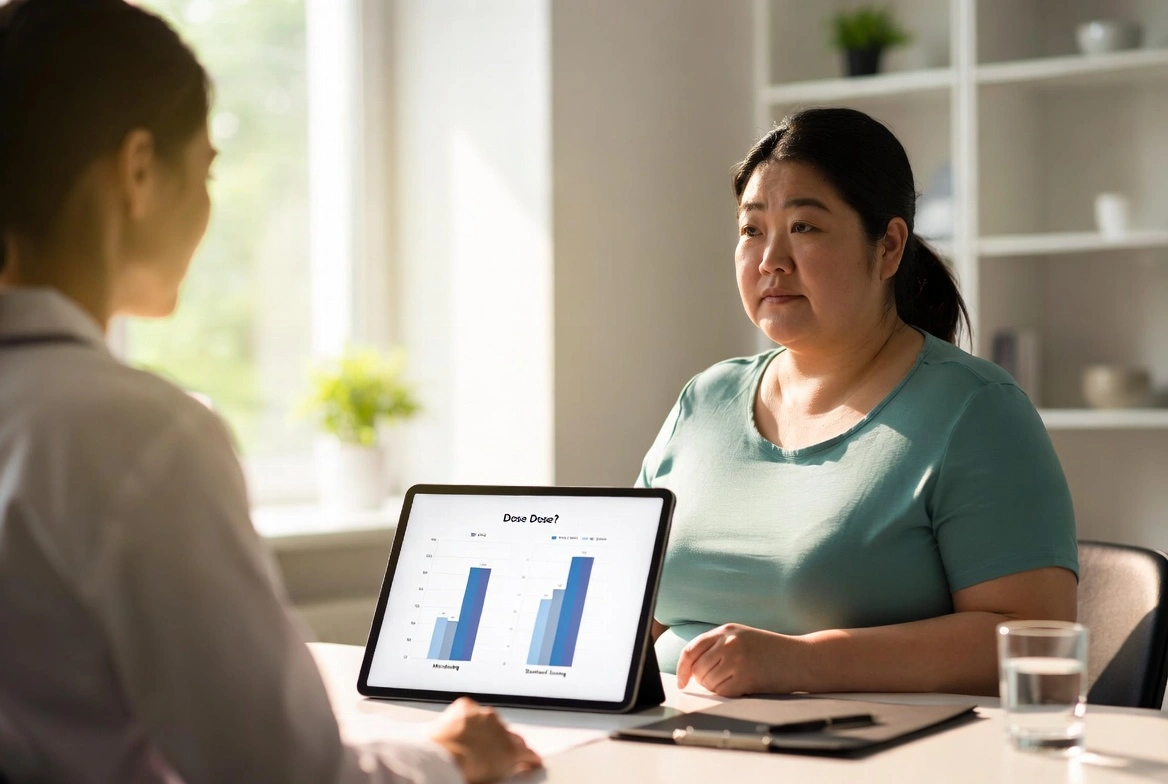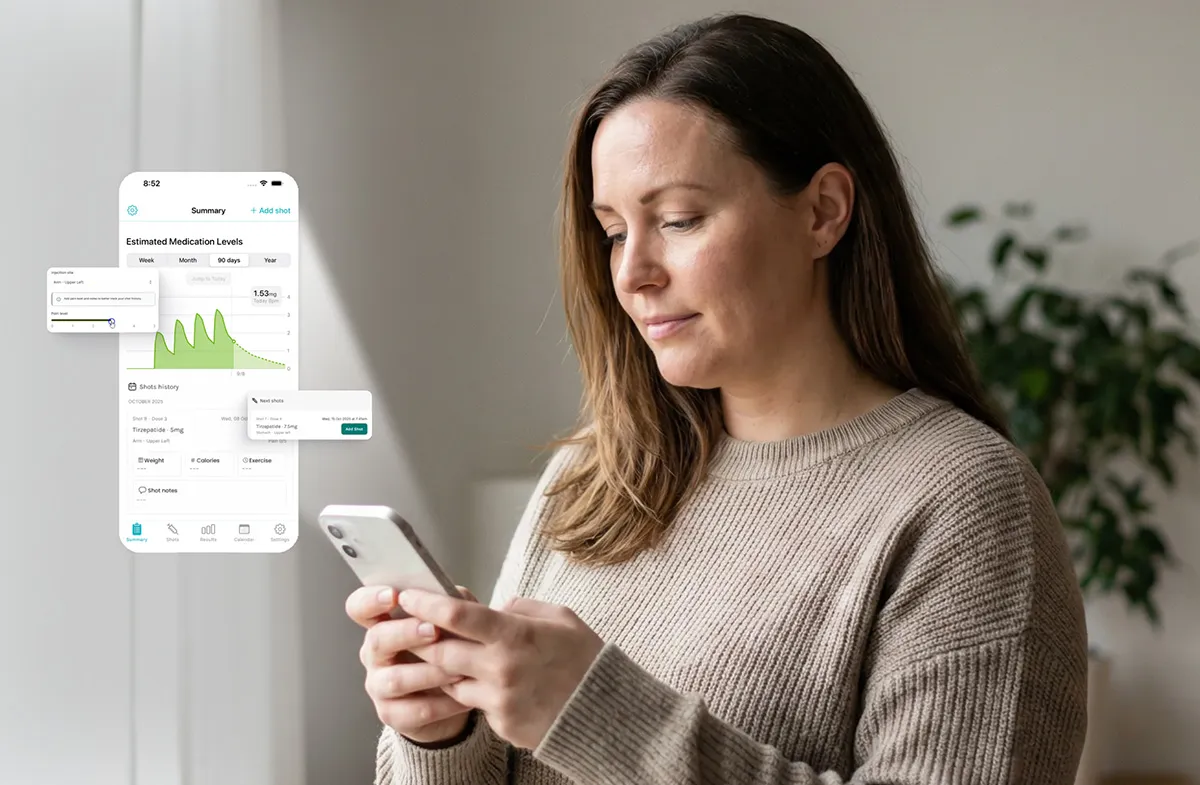The 4 Most Common Side Effects of GLP-1s And How to Manage Them


Explore the most common side effects of GLP-1 medications like nausea and fatigue, and strategies that may support your comfort during treatment.
- GLP-1 side effects are gastrointestinal: nausea, constipation, diarrhea, and bloating.
- These effects generally appear during dose escalation and may lessen over time.
- Hydration, dietary adjustments, and specific supplement strategies may support relief.
- Always consult a licensed healthcare provider before starting, stopping, or modifying treatment.
- Eden connects patients with independent, licensed healthcare providers who can evaluate whether GLP-1 treatment is appropriate.

GLP-1 receptor agonists have quickly become one of the most talked-about treatments in metabolic health. For patients navigating weight loss and type 2 diabetes treatment, these medications may offer effective support. But as with any new medication, understanding side effects is important for safety, consistency, and long-term success.
This article explores four of the more frequently reported side effects of GLP-1 medications and offers strategies to support symptom relief.
1. Nausea: Why It Happens and How to Manage It
Nausea is the most frequently reported side effect of GLP-1 medications. It occurs in up to 44% of patients using semaglutide during initial treatment stages, according to a 2021 randomized clinical trial published in The Lancet.
Why it happens:
GLP-1 medications slow gastric emptying, which means food stays in your stomach for a longer time. This helps with satiety but can also cause queasiness, especially when the body is adjusting to the medication.
What may help:
- Eat smaller, slower meals
- Avoid greasy, spicy, or high-fat foods
- Consider ginger or peppermint tea for natural symptom support
- Stay hydrated between, not during, meals
Some patients also find that protein-based snacks help reduce nausea by stabilizing blood sugar and avoiding an empty stomach. A personalized protein blend like Gainful’s Protein may offer gentle nutritional support without triggering symptoms.
2. Constipation: A Sluggish Side Effect of Slower Digestion
Constipation affects between 11–23% of GLP-1 users, according to data published in Obesity Pillars.
Why it happens:
GLP-1s delay stomach emptying, which can slow the movement of food through your entire gastrointestinal tract. Combine that with a lower food intake and reduced fiber, and constipation may result.
What may help:
- Increase fluid intake with electrolytes, not just plain water
- Boost fiber intake gradually through whole foods or a supplement
- Maintain regular physical activity, even short walks
- Track bathroom habits and adjust as needed
Hydration plays a major role in easing constipation, especially with delayed gastric emptying. Gainful Hydration is designed to replenish electrolytes that support fluid balance and regularity.
{{primary-cta}}
3. Diarrhea or Loose Stools: Finding the Balance
On the other end of the GI spectrum, diarrhea or loose stools may occur, especially during the first few weeks of treatment. One 2024 study noted that diarrhea affected ~20% of GLP-1 users, depending on the dosage and drug type.
Why it happens:
Slower digestion sometimes leads to food fermentation in the gut, which can disrupt bowel patterns and microbiome balance.
What may help:
- Limit sugar alcohols and artificial sweeteners
- Try probiotic-rich foods like yogurt or kefir
- Avoid caffeine and greasy foods during flare-ups
- Consider a gentle digestive support supplement
Gainful’s Gut Health Performance Boost may support microbiome balance with clinically backed ingredients like probiotics and digestive enzymes.
4. Fatigue or Low Energy: A Surprising but Common Complaint
Fatigue isn’t often listed on drug labels, but many patients report feeling sluggish, tired, or “off” after starting GLP-1 medications. While clinical trial data on this is limited, anecdotal reports suggest that rapid calorie reduction and mild dehydration may contribute to low energy.
Why it happens:
- Decreased food intake leads to fewer calories for energy
- Dehydration from GI side effects reduces performance and alertness
- Blood sugar fluctuations may cause dips in energy
What may help:
- Add a slow-digesting protein to maintain steady energy
- Rehydrate with electrolytes daily, especially in the morning
- Incorporate light movement like yoga or stretching to boost circulation
- Monitor daily nutrient intake to ensure you're meeting your needs
For some users, adding a protein source like Gainful’s Lean Protein in the morning or after physical activity may support symptoms without overwhelming digestion.
{{primary-cta}}
Why Monitoring and Support Matter
GLP-1 medications can significantly alter how your body processes food and absorbs nutrients. As a result, monitoring your symptoms and making targeted changes to your routine is essential.
Independent, licensed healthcare providers on the Eden platform can help evaluate your eligibility and determine if treatment is appropriate based on your goals and medical history. Their support may also help you adjust your plan over time, which may reduce side effects and support long-term adherence.
Conclusion: Side Effects Are Common, But Manageable
Adjusting to GLP-1 medications can come with challenges, particularly during the early stages of treatment. However, many commonly reported side effects, such as nausea, constipation, diarrhea, and fatigue, may become less noticeable over time. Staying hydrated, making thoughtful nutrition choices, and maintaining regular communication with a licensed healthcare provider may help support a more comfortable treatment experience.
By understanding how these medications interact with your metabolism and digestive system, you’re better equipped to support your body and stay on track with your treatment plan.
If you're exploring GLP-1 medications or looking for support in building a healthy routine while taking them, Eden connects individuals with independent, licensed healthcare providers specializing in metabolic health. Gainful’s supplements are designed to support hydration, digestion, protein intake, and overall wellness as part of a lifestyle-focused approach.
Please note that Eden does not manufacture or make medications. Eden does not manufacture or make Gainful supplements. Supplements are not reviewed by the FDA and are not intended to treat or diagnose any conditions. Please consult with your provider prior to making any changes.
Explore More from This Series:
- Why You’re Feeling Sluggish: The Hidden Dehydration Effect of GLP-1s
- Muscle Loss on GLP-1s? What You Need to Know
- Gut Trouble on GLP-1s? How to Support Your Digestion
- The Nutrition Gap No One Talks About on GLP-1s
- What a Balanced GLP-1 Routine Looks Like
- Ask a Provider: Do I really Need supplements on GLP-1s?
- How to Stick With Your GLP-1 Plan Long Term
Get connected with a licensed healthcare provider to explore your options. Learn more about personalized supplement support from Gainful.
Start Your Journey Here
{{primary-cta}}

Blog Components



The FDA does not approve compounded medications for safety, quality, or manufacturing. Prescriptions and a medical evaluation are required for certain products. The information provided on this blog is for general informational purposes only. It is not intended as a substitute for professional advice from a qualified healthcare professional and should not be relied upon as personal health advice. The information contained in this blog is not meant to diagnose, treat, cure, or prevent any disease. Readers are advised to consult with a qualified healthcare professional for any medical concerns, including side effects. Use of this blog's information is at your own risk. The blog owner is not responsible for any adverse effects or consequences resulting from the use of any suggestions or information provided in this blog.
Eden is not a medical provider. Eden connects individuals with independent licensed healthcare providers who independently evaluate each patient to determine whether a prescription treatment program is appropriate. All prescriptions are written at the sole discretion of the licensed provider. Medications are filled by state-licensed pharmacies. Please consult a licensed healthcare provider before making any medical decisions.
Davies, M., Færch, L., Jeppesen, O. K., Pakseresht, A., Pedersen, S. D., Perreault, L., Rosenstock, J., Shimomura, I., Viljoen, A., Wadden, T. A., & Lingvay, I. (2021). Semaglutide 2·4 mg once a week in adults with overweight or obesity, and type 2 diabetes (STEP 2): a randomised, double-blind, double-dummy, placebo-controlled, phase 3 trial. The Lancet, 397(10278), 971–984. https://doi.org/10.1016/s0140-6736(21)00213-0
Ghusn, W., & Hurtado, M. D. (2024). Glucagon-like Receptor-1 agonists for obesity: Weight loss outcomes, tolerability, side effects, and risks. Obesity Pillars, 12, 100127. https://doi.org/10.1016/j.obpill.2024.100127
Thank you!
We'll be in touch.
Thank you!
























